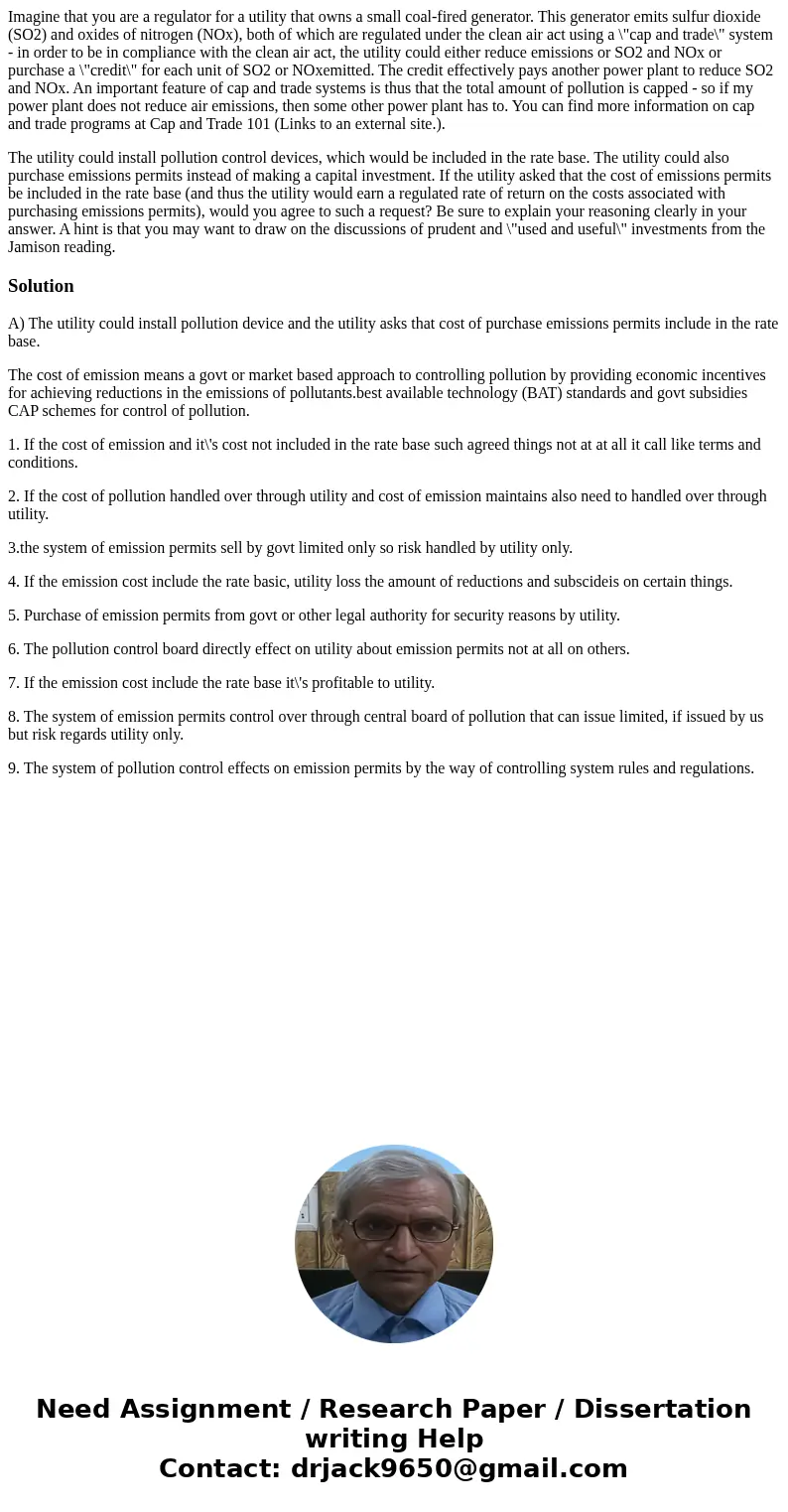Imagine that you are a regulator for a utility that owns a s
Imagine that you are a regulator for a utility that owns a small coal-fired generator. This generator emits sulfur dioxide (SO2) and oxides of nitrogen (NOx), both of which are regulated under the clean air act using a \"cap and trade\" system - in order to be in compliance with the clean air act, the utility could either reduce emissions or SO2 and NOx or purchase a \"credit\" for each unit of SO2 or NOxemitted. The credit effectively pays another power plant to reduce SO2 and NOx. An important feature of cap and trade systems is thus that the total amount of pollution is capped - so if my power plant does not reduce air emissions, then some other power plant has to. You can find more information on cap and trade programs at Cap and Trade 101 (Links to an external site.).
The utility could install pollution control devices, which would be included in the rate base. The utility could also purchase emissions permits instead of making a capital investment. If the utility asked that the cost of emissions permits be included in the rate base (and thus the utility would earn a regulated rate of return on the costs associated with purchasing emissions permits), would you agree to such a request? Be sure to explain your reasoning clearly in your answer. A hint is that you may want to draw on the discussions of prudent and \"used and useful\" investments from the Jamison reading.
Solution
A) The utility could install pollution device and the utility asks that cost of purchase emissions permits include in the rate base.
The cost of emission means a govt or market based approach to controlling pollution by providing economic incentives for achieving reductions in the emissions of pollutants.best available technology (BAT) standards and govt subsidies CAP schemes for control of pollution.
1. If the cost of emission and it\'s cost not included in the rate base such agreed things not at at all it call like terms and conditions.
2. If the cost of pollution handled over through utility and cost of emission maintains also need to handled over through utility.
3.the system of emission permits sell by govt limited only so risk handled by utility only.
4. If the emission cost include the rate basic, utility loss the amount of reductions and subscideis on certain things.
5. Purchase of emission permits from govt or other legal authority for security reasons by utility.
6. The pollution control board directly effect on utility about emission permits not at all on others.
7. If the emission cost include the rate base it\'s profitable to utility.
8. The system of emission permits control over through central board of pollution that can issue limited, if issued by us but risk regards utility only.
9. The system of pollution control effects on emission permits by the way of controlling system rules and regulations.

 Homework Sourse
Homework Sourse